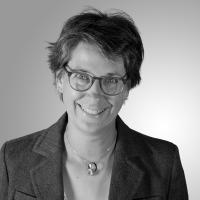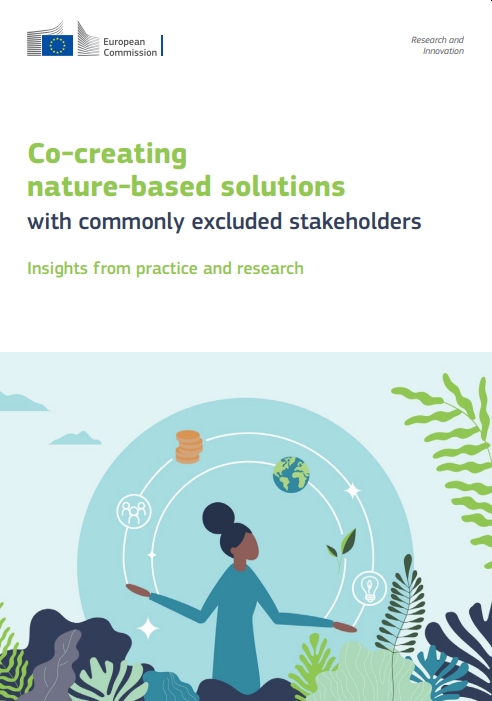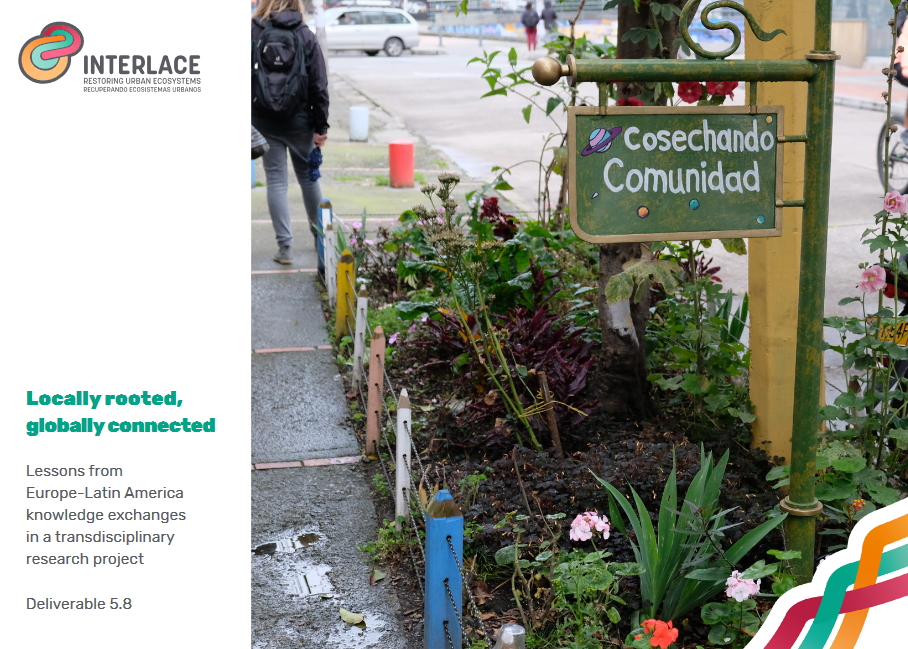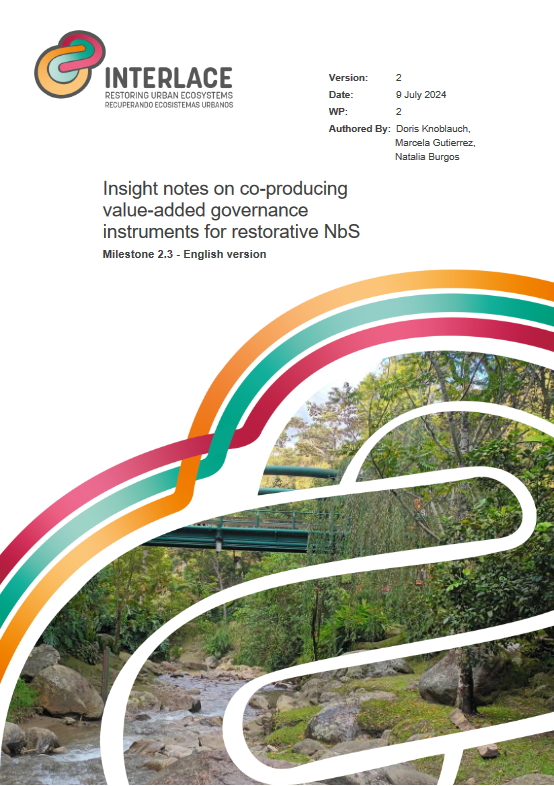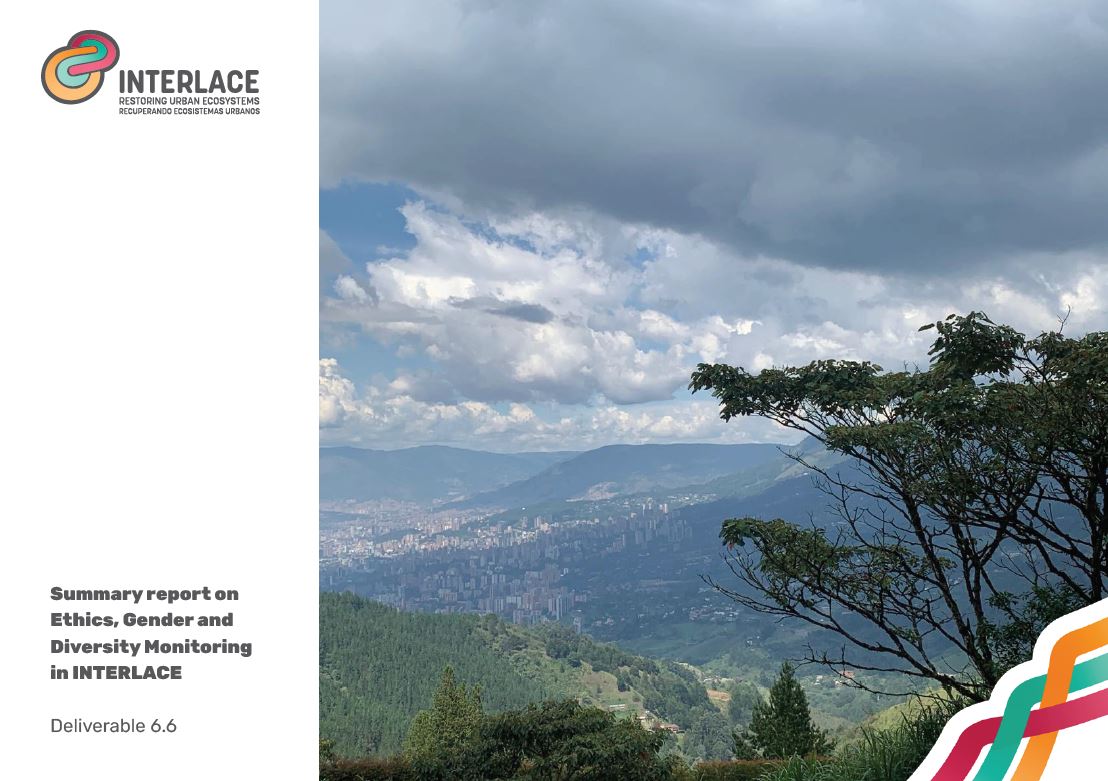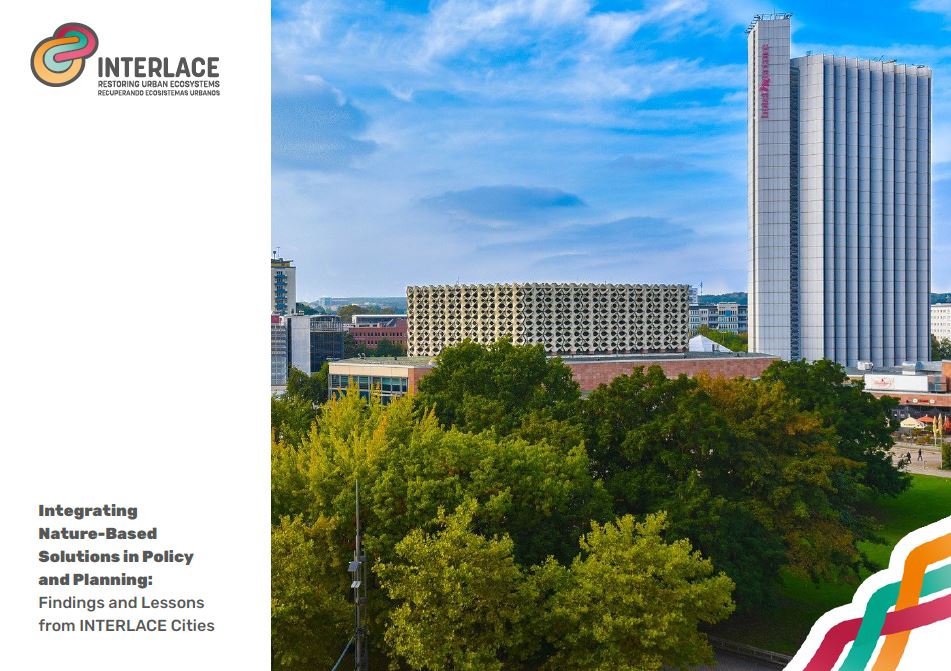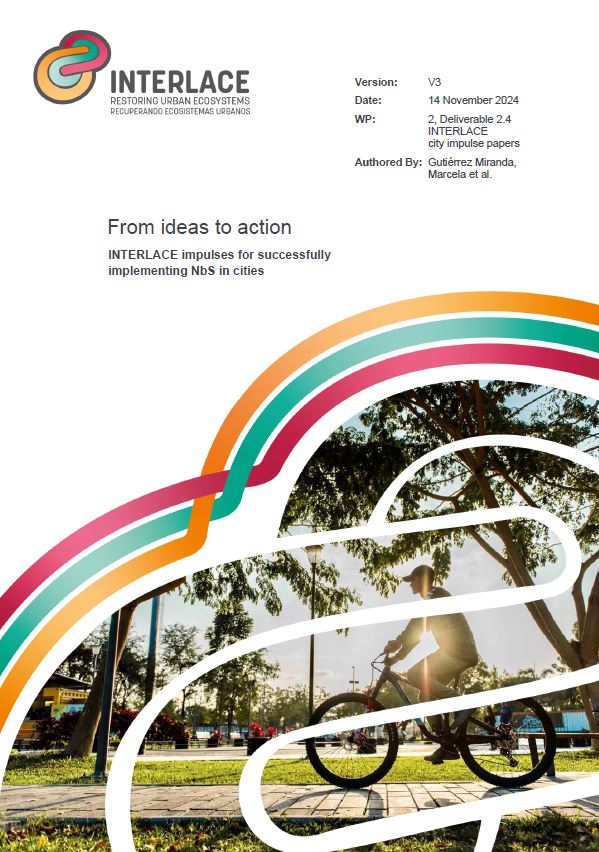Sandra Naumann presenting the INTERLACE project and its work on the ground to the audience.
|Cities Talk Nature Europe: Nature, Places, People
International Conference of the INTERLACE project in Kraków
- Presentation
- Date
-
- Location
- Kraków, Poland
- Chairing
-
Sandra NaumannNatalia Burgos Cuevas
From 21 to 22 September 2022, the INTERLACE project held the first European Cities Talk Nature Engagement Event in Kraków (Poland). The project is led by Ecologic Institute.
The Kraków Metropolitan Area hosted the event titled "Cities Talk Nature Europe: Nature, Places, People". The conference aimed to strengthen knowledge and exchange on the implementation of nature-based solutions. It brought together more than 50 participants from municipalities and other organisations from across Europe.
Sandra Naumann, Coordinator of the INTERLACE project and Senior Fellow at Ecologic Institute, opened the conference by presenting the INTERLACE project and its work on the ground to the audience. Łukasz Pawlik, Deputy Director of the Kraków Municipal Greenspace Authority, then introduced the achievements, perspectives and challenges of green space management in Kraków and explained that two percent of the city’s budget is devoted to green spaces. One aim is to double the forest cover until 2040 from four to eight percent, while guaranteeing all inhabitants a just and equal access to green spaces.
In the following, four speakers introduced the topics of the afternoon workshops, among them Natalia Burgos Cuevas, Researcher at Ecologic Institute, who presented the Urban Governance Atlas, which is being developed within the INTERLACE project. The first half of the day was concluded with a panel discussion: The representatives of the three European INTERLACE cities Granollers, Chemnitz and Kraków Metropolitan Area shared their experiences in implementing nature-based solutions. Xavier Romero Hidalgo from the city of Granollers emphasised for example the advantages of cooperating with the scientific community to transform degraded urban areas. Daniel Wrzoszczyk from the Kraków Metropolitan Area highlighted that the development of public spaces and its financing requires a completely new approach due to climate change. Max Krombholz reported on an example from the city of Chemnitz, where flooding led to the decision to develop a parking lot into a green area. Following this, he stressed the importance to act in advance of extreme weather events.
In the afternoon, four workshops invited the participants to deepen the morning discussions: In the first workshop, possibilities to apply universal standards of urban green areas maintenance in Polish and European cities were discussed. In the second workshop, the assessment analysis of the climate change sensitivity of the Kraków Metropolitan Area was introduced. Participants then discussed which vulnerability criteria should be considered most important. The attendees of the third workshop collected already existing instruments which support the implementation of Nature-based Solutions. This workshop was co-moderated by Natalia Burgos Cuevas. In the fourth workshop, experiences from participatory processes in urban ecosystem development were shared and discussed.
The second day then was all about practical experiences: During a five-hour tour, conference participants visited the different green areas within the Metropolitan Area of Kraków and learned about their history, development and functions. These on-site visits produced a lot of exchange and rounded off a stimulating conference.



